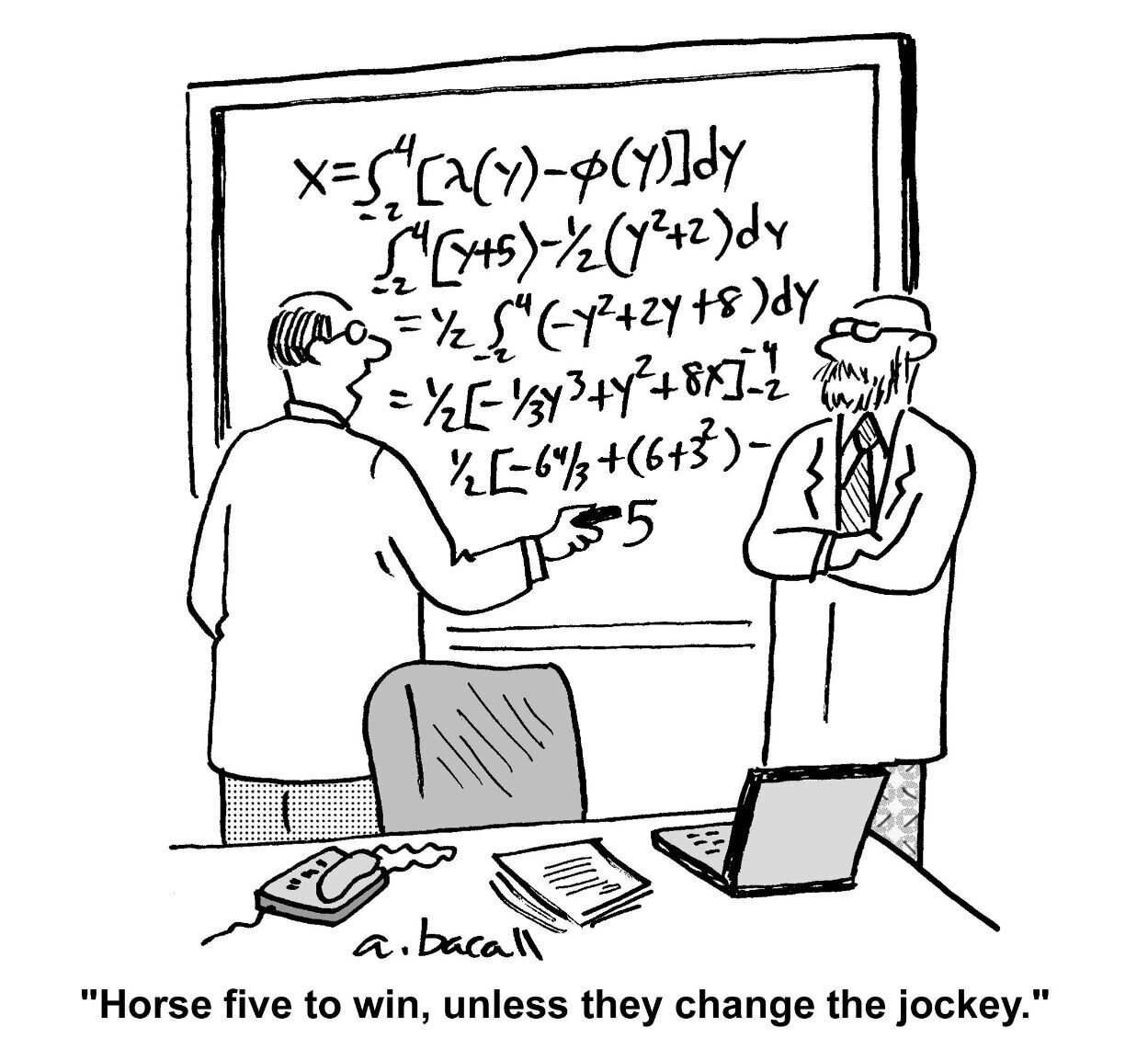How Mediation is Like Horse Racing
/Mediating a claim in which there is a pending dispositive motion (e.g. Fla.R.Civ.P.1.510, Federal Rule 56 F.R.C.P.) is seldom a productive use of time and resources. The parties only rarely voluntarily agree to the mediation; instead, judges order cases to mediation, all the while knowing that the mediation is almost certainly going to result in an impasse.
Why do these cases (those with pending dispositive motions) so seldom result in settlements? For the same reason that the betting window closes at Churchill Downs when the horses are behind their starting gates. The bettor has done her research, evaluated the odds of coming in the money and, feeling all in, wants to see how her horse does. The horse race analogy seems particularly apt to me. Dispositive Motions are time consuming and expensive to prepare. In effect, the bet is down and you have paid for your ticket. There are roughly the same number of opportunities that may come of the motion as there are winning places in the horse race: win = case is gone; place = case is gone but can come back, in altered form; show = parts of case are gone, parts of case can continue.
Here are some suggestions on how to deal with mediating claims that are the subject of dispositive motions:
1. Don’t. Ask that the mediation be postponed until the pending motions have been ruled on. If you are compelled to proceed with the mediation and there is no possible outcome but to wait for a ruling on the motion(s), make that position clear and get your Notice of Impasse without wasting a lot of time and resources
2. Talk to opposing counsel about negotiating around the pending motion. In other words, is there a version of the claim that is likely enough to emerge and can that serve as a plausible basis upon which to negotiate? If not, see #1 above.
3. Ask the judge to meet with the parties and then ask for guidance based on what has already been filed. In the pre-mediation era, they were called settlement conferences and were characterized by often vigorous judicial arm-twisting. Keeping in mind the spirit of self-determination, a judge can provide analytical insight that can inform a negotiating strategy that might lead to a settlement.
Litigation is an expensive, time consuming and risky process. Mediation is a valuable method to avoid litigation but not if it means mediating with an empty chair (the judge) at the negotiating table.
Learn more about my mediation services or read more from my blog at BensonMediation.com.


